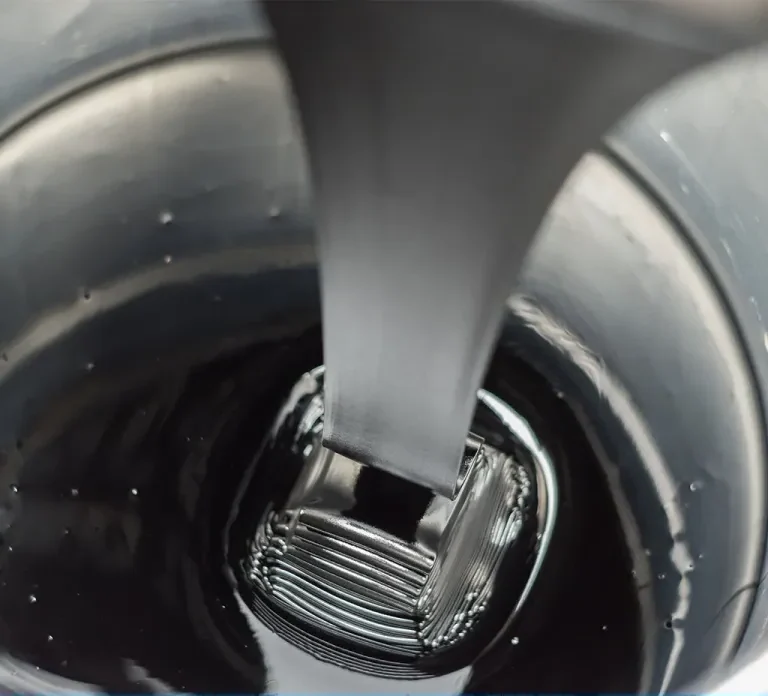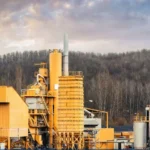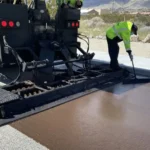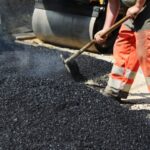🛣️ What is Polymer Grade Bitumen? | Full Guide to PMB
Polymer Grade Bitumen, also called Polymer Modified Bitumen (PMB), plays a crucial role in modern infrastructure by combining durability, flexibility, and long-term performance. Engineers and road contractors rely on this enhanced binder for high-traffic roads, bridges, airports, and waterproofing systems. This guide explains what Polymer Bitumen is, how it’s made, and why it’s used across the construction and paving industries.
🔍 What is Polymer Grade Bitumen?
Polymer Grade Bitumen is a specially formulated asphalt binder created by modifying conventional bitumen with polymer additives like SBS (Styrene-Butadiene-Styrene), EVA (Ethylene Vinyl Acetate), or LDPE (Low-Density Polyethylene). These polymers change the molecular structure of bitumen to enhance:
-
🌡️ Thermal stability
-
🧪 Elasticity and flexibility
-
🚧 Resistance to cracking, rutting, and fatigue
It combines the waterproofing and adhesion characteristics of base bitumen with the strength and versatility of synthetic polymers. As a result, this material performs far better than standard bitumen under harsh conditions.
🏭 How is Polymer Grade Bitumen Manufactured?
Manufacturers produce Polymer Modified Bitumen using a carefully controlled blending process. The procedure ensures uniform dispersion of the polymer within the bitumen and maintains long-term stability.
⚙️ Key Production Steps:
-
Heat the base bitumen to 160–180°C to prepare for blending.
-
Introduce polymers (SBS, EVA, etc.) under high shear mixing conditions.
-
Add stabilizers and anti-stripping agents to improve storage and bonding.
-
Maintain mixing for 1–2 hours to ensure proper dispersion and compatibility.
-
Test the final product for consistency, elasticity, softening point, and viscosity.
📊 This process transforms bitumen into a more durable and temperature-resistant material suitable for critical applications.
Polymer Grade Bitumen is produced by blending bitumen with thermoplastic or elastomeric polymers. The addition of polymers enhances the physical properties and performance characteristics of the bitumen, making it more durable, flexible, and resistant to deformation. The type and amount of polymer used can be adjusted depending on the specific application requirements.
📊 Technical Specifications of Polymer Grade Bitumen
| Property | Typical Range | Test Methods |
|---|---|---|
| Penetration @25°C (dmm) | 40 – 60 | ASTM D5 |
| Softening Point (°C) | ≥ 60 | ASTM D36 |
| Elastic Recovery (%) | ≥ 60 | ASTM D6084 |
| Viscosity @135°C (cP) | 1000 – 3000 | ASTM D4402 |
| Ductility @25°C (cm) | ≥ 100 | ASTM D113 |
| Storage Stability (°C diff) | ≤ 5 | ASTM D7173 |
These values vary depending on the polymer used and the project specifications. SBS-modified bitumen typically exhibits higher elasticity and performance under heavy loads.
🏗️ Applications of Polymer Grade Bitumen
🛣️ 1. Expressways & Highways
PMB provides long-term resistance to rutting, cracking, and moisture damage in roads with high traffic volumes.
🛫 2. Airport Runways
Airports use PMB for its ability to handle extreme heat from jet engines and high loads from aircraft landings.
🧱 3. Bridge Decks & Waterproofing Membranes
PMB improves flexibility and sealing in bridge expansion joints and concrete surfaces.
🏢 4. Roofing Systems
Architects apply PMB in roofing felt and membranes to resist UV degradation and weather extremes.
🏭 5. Industrial Surfaces
Heavy-duty surfaces in factories and warehouses benefit from PMB’s oil resistance and long-lasting structure.
The polymer additives used in Polymer Grade Bitumen can include styrene-butadiene-styrene (SBS), styrene-butadiene rubber (SBR), ethylene-vinyl acetate (EVA), and various other elastomers. These polymers improve the bitumen’s resistance to temperature variations, aging, cracking, and rutting, thereby extending the lifespan of the pavement or waterproofing system.
✅ Polymer Grade Bitumen offers several advantages over conventional bitumen:
-
🌡️ Thermal Resilience – Performs well in both hot and cold climates.
-
🚧 Improved Deformation Resistance – Handles heavy, repetitive loads.
-
🧪 Longer Service Life – Reduces repair frequency and lifecycle cost.
-
💧 Superior Waterproofing – Prevents water ingress into structures.
-
🔧 Better Adhesion to Aggregates – Improves bonding in asphalt mix.
-
🏗️ Ideal for Complex Structures – Works in curved, sloped, and jointed surfaces.
Enhanced Performance:
The incorporation of polymers improves the strength, elasticity, and flexibility of the bitumen, allowing it to withstand heavy traffic loads, extreme weather conditions, and thermal stresses.
Improved Aging Resistance:
Polymer additives enhance the bitumen’s resistance to aging, oxidative degradation, and UV radiation, resulting in a longer service life for the pavement or waterproofing system.
Superior Waterproofing Properties:
Polymer Grade Bitumen exhibits excellent waterproofing capabilities, preventing the ingress of water into structures and protecting them from moisture-related damage.
Increased Resistance to Cracking and Rutting:
The polymer modification enhances the bitumen’s resistance to cracking caused by traffic loads and rutting due to repeated wheel loads, ensuring the integrity and smoothness of the road surface.
Versatile Applications:
Polymer Grade Bitumen is suitable for various applications, including road construction, airport runways, bridge decks, parking lots, roofing, and waterproofing systems.
📉 Comparison: Polymer Bitumen vs. Standard Bitumen
| Feature | Standard Bitumen | Polymer Modified Bitumen |
|---|---|---|
| Elastic Recovery | Low | High |
| Crack Resistance | Moderate | Excellent |
| Temperature Sensitivity | High | Low |
| Resistance to Rutting | Moderate | Strong |
| Typical Service Life | 8–10 years | 15–20 years |
| Maintenance Needs | Frequent | Minimal |
❓ FAQs about What is Polymer Grade Bitumen?
🛠️ What does polymer do in bitumen?
Polymers improve flexibility, heat resistance, and durability. They help the bitumen recover from deformation and resist aging.
🔍 Is Polymer Bitumen better than conventional bitumen?
Yes. Polymer Bitumen offers longer service life, higher resistance to traffic stress, and better weather performance.
🧪 Which polymers are commonly used?
Styrene-Butadiene-Styrene (SBS) and Ethylene-Vinyl Acetate (EVA) are widely used due to their excellent flexibility and compatibility with bitumen.
🏗️ Where is Polymer Bitumen most often used?
You’ll find it in expressways, runways, bridges, industrial floors, and advanced waterproofing systems.
🛢️ Can Polymer Bitumen be used in cold climates?
Yes. PMB maintains elasticity even at low temperatures, preventing cracks and surface failures.
🏭 How is Polymer Bitumen supplied?
It is available in bulk tankers, drums, and sometimes as pre-coated products depending on the project size and logistics.
🏁 Conclusion
Polymer Grade Bitumen is essential for high-performance infrastructure in today’s demanding environments. By modifying bitumen with polymers, engineers achieve a reliable binder that withstands temperature extremes, resists damage, and extends the life of pavements and structures. Whether you’re building roads, bridges, or waterproofing buildings, PMB ensures strength, flexibility, and superior results.
📣 Call to PARS Universal Bitumen
👉 Need High-Quality Polymer Grade Bitumen?
🛠️ We supply SBS and EVA-modified bitumen for road and waterproofing applications
📞 Talk to our experts for customized specifications and pricing
🚚 Bulk and drum packaging available
✅ Build longer-lasting, high-performance infrastructure with PMB!
📞 Contact our technical sales team today for specifications, samples, and pricing.
📧 Email: [email protected]
📞 Phone: +971 4 878 2031
🌐 Visit: Pub-ltd
🛒 Order Polymer Grade Bitumen Today. If You have any other Query or Question you want to ask, Please don’t hesitate to Contact Us.




